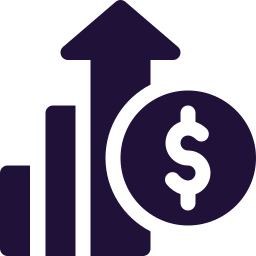In today's fast-paced and financially complex world, people constantly seek innovative ways to grow and secure their wealth.
Life insurance is one often overlooked yet surprisingly versatile financial tool that can serve as both a safety net and a wealth generator.
As a critical component of a well-rounded financial plan, life insurance can offer a plethora of opportunities for value creation and capital preservation.
For the astute and discerning investor, life insurance can be a strategic asset that offers valuable avenues to generate income and optimize one's financial portfolio.
By leveraging the unique features and benefits of various life insurance products, such as whole life, indexed universal life, and variable universal life policies, you can unlock many opportunities for wealth creation and long-term financial stability.
In this article, we'll explore four ways to make money using life insurance and unpack some common life insurance terms to help you better understand your policy.
This article is written as general education, and should not be considered as personal financial advice. If you would like personal guidance with life insurance, you can schedule a time to talk with one of our experts.
Four Tips to Make Money with Life Insurance
Tip #1: Use It as a Retirement Vehicle
Life insurance policies can be used as an effective retirement planning tool, particularly permanent life insurance policies such as whole life, indexed universal life, or variable universal life insurance.
These policies typically have a cash value component that accumulates tax deferred over time, and can be accessed free of ordinary federal income tax, as long as there is a properly structured ownership and beneficiary arrangement, and that the policy has been properly funded.
The income is usually accessed from the policy in two phases; first, in the form of dividends and withdrawals to cost basis, and secondly in the form of loans during your retirement years.
By strategically funding your policy in the earlier years and managing the cash value component through the investment options your policy provides, you can create a tax-efficient retirement income stream that complements your other retirement assets, such as 401(k)s, IRAs, and Social Security benefits.
If you are planning on using your life insurance policy’s cash value it is highly important to review your policy at least annually to ensure you are staying on track with investment returns and premium payments.
It is also important when taking distributions to consult a financial advisor so that you are doing so without unintended tax consequences or letting the policy lapse.
Keep in mind that any distributions will affect the overall death benefit and cash value. It may also affect riders and guarantees. The policy owner will also be giving up whatever investment performance that distribution would have made if it was left inside the contract.
Tip #2: Access Money from the Policy to Invest or Start a Business
Cash value inside a life insurance policy can generally be accessed also prior to your retirement, usually as a lump sum, which you can use to make an investment or start a business.
Using the cash value of your policy as seed capital for a business idea, buying real estate, or making other investments can help you leverage your policy and earn money.
In fact, this strategy has been applied by many successful business people and investors throughout the times. One example of this is Walt Disney, who used financing from his whole life insurance policy to help start Disneyland, which over time helped him generate substantial returns.
Doing this generally involves loans which are secured by the policy's cash value, and needs to be handled carefully.
Generally, it is helpful if funds securing a loan is allocated to an account with downside protection. Additionally, the loan balance should be managed against the total cash value of the policy, as the balance should never exceed the total cash value.
Finally, the way the money is actually deployed into a new business venture or investment will be the most important factor in the success in this strategy. Having financing is only valuable if the underlying use of the money can help you generate gains over time.
Tip #3: Leverage Life Insurance to Pay Estate Taxes
For high-net-worth individuals, life insurance can be an invaluable tool for addressing estate tax liabilities.
Federal estate taxes, along with state inheritance taxes, can significantly erode the value of your estate, leaving your heirs with a smaller inheritance than you may have intended.
One solution to this issue is to establish an irrevocable life insurance trust (ILIT) and fund it with a permanent life insurance policy.
Upon the insured's death, the proceeds from the policy can be used to pay estate taxes. Using life insurance ensures that your heirs receive their full inheritance without being burdened by estate tax liabilities or needing to liquidate other assets (possibly at the wrong time) to pay Uncle Sam.
This strategy requires careful planning and the assistance of an experienced estate planning attorney, tax attorney, and financial advisor, but can be a highly effective means of preserving your wealth for future generations.
Tip #4: Sell Your Policy
Another way to make money with life insurance is by selling your policy. This option, known as a life settlement or viatical settlement, involves transferring the ownership of your policy to a third party in exchange for a lump sum payment. The new owner then takes over the premium payments and will receive the death benefit upon the passing of the insured person.
This can be a useful strategy for individuals who no longer need the death benefit protection, have a change in financial circumstances, or simply wish to cash in on the value of their policy.
It's important to note that policy owners may have access to cash value without selling their contract.
Many companies offer living benefit riders that allow an owner to receive most of the death benefit if the insured is terminally ill. There may also be ways to access the money without giving up the policy completely (e.g. loans, withdrawals, and dividends).
Selling your policy to a third party may have tax implications, and you should consult with your financial and tax advisors to determine if this is the right move for you.
Understanding Life Insurance Terms
To make the most of your life insurance policy as a wealth-building tool, it's essential to understand some key terms:
Death Benefit
The amount of money your beneficiaries will receive upon the insured’s death.
This is typically free of ordinary federal income tax, assuming that there is a properly structured ownership and beneficiary arrangement.
The death benefit can be used to replace lost income, pay off debts, cover funeral expenses, or be invested for future growth.
Premium
The amount of money you pay to the insurance company to maintain your policy.
Premiums can be paid monthly, quarterly, or annually, and are determined by factors such as your age, health, and the type and amount of coverage you choose.
Premiums may or may not be flexible, meaning that some policies such as universal life may allow you to pay more or less premiums in a certain period depending on your cash flow.
For permanent policies, premiums can generally be paid for different durations, which can be either a certain amount of years, such as 10, 20, or 30, or, to a certain age, such as age 65, 100, or 120.
Cash Value
The savings component of a permanent life insurance policy, which typically accumulates over time on a tax-deferred basis.
This can be accessed through policy loans, withdrawals, dividends, or surrenders, and can be used to supplement retirement income, pay for college expenses, or address other financial needs.
Surrender Value
The total amount of cash value subtracting any outstanding loans or penalties.
This is the amount of money the policy owner would receive from the insurer if they canceled the policy.
This amount does not include any taxes that may be owed if the policy is canceled.
The Bottom Line
Life insurance is more than just a safety net for your loved ones—it can also be a powerful wealth-building tool when used strategically.
By understanding the different ways to make money with life insurance, you can maximize the value of your policy and create financial security for yourself and your family.
At White Swan, we’re committed to helping you achieve your financial goals - be it to protect your future with our life insurance products or use it to help build your wealth.
We understand that everyone’s circumstances are different, and we strive to provide the best possible service to our clients.
Getting started is easy - visit our platform today to get a personal plan.
So if you’re looking for life insurance reviews or any other financial assistance, don’t hesitate to schedule a call with one of our industry experts today. Our digital platform and industry experts are here to help you every step of the way!
.png)




.png)



.png)


.png)









.png)
.png)
.png)



.png)


.png)
%20copy.png)
%202.png)
.png)



.png)
.png)
.png)